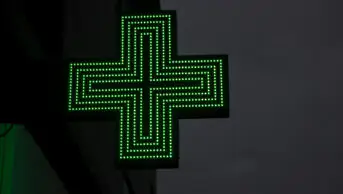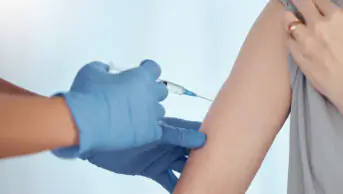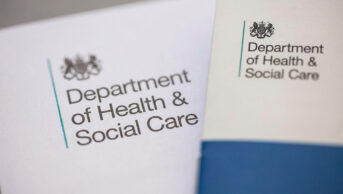Pharmacists may feel empathy for junior doctors — both are in vital professions that are too often undervalued by those who know and understand too little about health services. And it’s possible that the current industrial action being taken by junior doctors, led by the British Medical Association (BMA), may provide a few lessons for the community pharmacy sector in particular.
At the time of writing, while there are preliminary noises about going to arbitration via ACAS, the pay dispute between the government and the BMA is very much ongoing, on the third day of their four-day strike.
While the economic case for the BMA’s proposed 35% pay increase is contested by the independent and respected Institute for Fiscal Studies — they claim it is more like 11–16% (depending on seniority) — it remains clear from this piece in the Sunday Times (among others) that there is broad consensus junior doctors’ pay has fallen well behind.
Public opinion has remained broadly with the junior doctors, which is quite remarkable, given the evident risks to safe patient care
Public opinion has remained broadly with the junior doctors, with polling by Ipsos showing a small increase in support since last month, up by 3 percentage points to 54%. This is quite remarkable, given both the evident risks to safe patient care and that this current action is the second long strike after a three-day strike in March, which led to very short-lived talks.
Talks about talks
The government has not helped itself by looking intransigent. Health secretary Steve Barclay offered the junior doctors’ leaders no serious dialogue on pay before the first strike, ensuring that it went ahead. He reportedly told BMA negotiators that “he did not have any mandate to negotiate an improved pay offer”.
On Twitter, he claimed: “[The BMA] placed a pre-condition on these talks of a 35% pay rise. That is unreasonable.”
This assertion by SOS Barclay was promptly fact-checked in pretty much real time by the junior doctors’ leaders, who’d been in the room with him. Both the official Junior Doctors’ Twitter account and GP trainee and junior doctor committee co-chair Robert Laurenson pointed out that Mr Barclay’s account of events was less than wholly truthful, backing up their version of events with a photo of the DHSC’s negotiating ‘rules’.
Again, before the latest strike, the BMA leadership’s latest communication stated that Mr Barclay’s most recent communication required new preconditions, of the kind he had been alleging they had established, adding bluntly that “without any credible offer, next week’s strikes will continue”. No such credible offer arrived.
Getting the message right
The junior doctors have been broadly smart so far. They obviously prepared for a Barclay intransigence scenario in the negotiations that followed the first strike. This was a smart read of the situation: the Department For Health’s pre-negotiation statement that “we deeply regret that over 175,000 appointments and procedures were cancelled this week, despite our offer to start formal talks on the condition strikes were paused” was scarcely a sign of a conciliatory attitude.
Nor did the BMA leaders concede the battle of the media spinning to the government.
It looks as if someone in or around the BMA noticed that their 2015/2016 new junior doctors’ contract dispute had been undermined by the then-leaders’ inept attempts at decentralised leadership; freestyle communications and media stunts; and lack of message discipline. (I did in fact mention these things at that time.)
That 2015/2016 dispute showed the utter folly of letting such an approach roll. The apparent belief that ‘We’re doctors; we’re great at everything, including political communications’ was predictably and promptly tested to destruction.
The new junior doctor leaders notice all of this: they’ve done something about it. The 2023 leaders have taken their media training and message discipline seriously, as this clip from Andrew Marr’s LBC programme demonstrates. This is a necessary, if not sufficient, improvement.
Lessons for pharmacy?
The community pharmacy sector in England has perhaps not triumphed in its recent negotiations with the government, but there may be some useful lessons from what junior doctors have got right in 2023.
The first is preparation of an internal campaign, which started well before 2023. The ‘full pay restoration’ may be based on some unusual economic assumptions, but the BMA have had this running for a long time before the start of the actual industrial action. They consolidated and built support within the profession: this is why the vote for industrial action was overwhelming – 98% voted for industrial action, on a 77% turnout. The recently launched ‘Save Our Pharmacies’ campaign is starting to do this, with its talk of a 30% cut in funding since 2015, but it comes a bit late and needs refining to have more impact.
The public can relate to what has been a brutal cut in pharmacy funding if you put it in terms they understand
The second is getting the external campaign right. To some extent, the flurry of industrial action in other sectors over the past 18 months, with barristers, train staff, postal staff and the nursing and other Agenda For Change professions going first, have normalised industrial action. The public probably doesn’t like being inconvenienced, but they are going through the same cost-of-living/inflation crisis that is driving all of these pay disputes. Of course, community pharmacists can’t take industrial action in the same way, but the public can relate to what has been a brutal cut in pharmacy funding if you put it in terms they understand — that they may have to pay for deliveries, won’t get the medication they need, or their pharmacy will be closed permanently (or temporarily at unusual times) owing to a lack of staff.
Pharmacy and pharmacists will need to be making the case to the media, politicians and the public of being ‘key workers’. For junior doctors, while the 2015/2016 campaign was overall a failure, the bit that had genuine impact was the #ImInWorkJeremy social media campaign, when Jeremy Hunt wrongly claimed that junior doctors were not found in hospitals at weekends. Where is the equivalent campaign for community pharmacy?
The third is message discipline. Most of the media appearances during the junior doctor strikes have been done by a small number of well-trained spokespeople, who have kept to a simple set of messages. They have not allowed Mr Barclay to make the media running unchallenged. To an outsider, community pharmacy in England has multiple three-letter acronyms all saying slightly different things and representing different groups. Agree on the most powerful lines and make sure everyone says them repeatedly.
Andy Cowper is editor of Health Policy Insight and a journalist who has written about health policy for 22 years.


